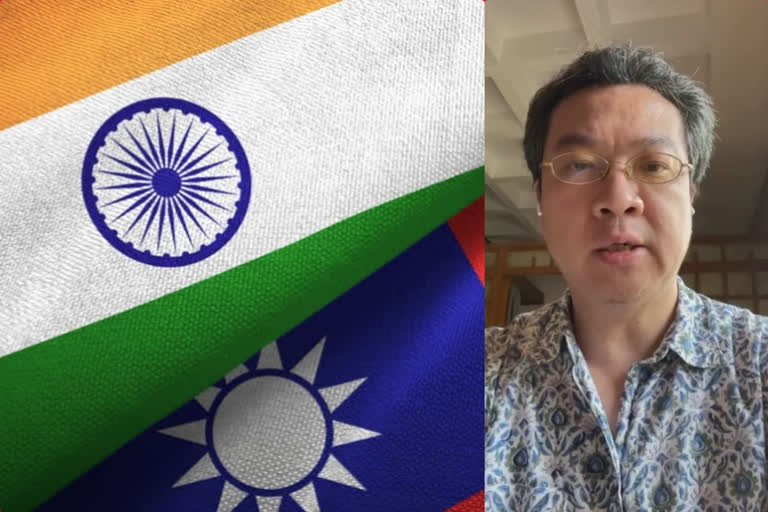New Delhi: Taiwan’s Deputy Minister of Economic affairs Chen Chern-Chyi is all set to visit Delhi next week to take part in the annual India-Taiwan minister-level meeting which hasn’t taken place in person for two years because of the Covid pandemic.
The Economic Affairs Minister will lead a delegation of Taiwanese investors, including IT companies. He is also slated to address the India-Taiwan Industrial Collaboration Summit organized by the industry body Federation of Indian Chambers of Commerce & Industry (FICCI) in the national capital.
Taiwanese scholar and Professor Dr Roger Liu told ETV Bharat that the visit assumes significance considering the recent geo-political developments involving Taiwan, China, and the US.
“The visit comes at a time when India has been acquiring Taiwan’s technology and intends to set up the semiconductor manufacturing supply chain. India is also eager to sign up FTA (Free Trade Agreement) with Taiwan. I think this high-level meeting is more important than the previous ones”, Liu told ETV Bharat in an exclusive interview.
Also read: India, Taiwan should consider finalising FTA as soon as possible: Taiwanese Envoy
The visit also comes at a time when India’s relations with China are strained because of the border clash on the Line of Actual Control (LAC). The meeting between the deputy economic ministers of India and Taiwan is an annual affair though it has been held virtually for the past two years because of the Covid-19 pandemic.
The meeting takes place alternatively in New Delhi and Taipei. Asked about the India-Taiwan ties in the context of changing geopolitical scenarios, Professor Liu said, “The bilateral relationship between India and Taiwan has been growing in the past few decades. This is something that we love to see but there are still a lot of obstacles.
The final signing of the free trade agreement is one of them. The two sides have begun exploring the possibility of signing the FTA for the past ten years but for some reason, it is not happening. The visit of the Deputy economic affairs minister to India can again bring this to the table for the two sides to discuss FTA."
The Taiwanese scholar highlighted that the two countries have signed several MoUs and other treaties concerning investment, business, and trade. For example, there is a bilateral investment agreement that will ensure that the Taiwanese investment in India is protected, he said, while adding that the FTA is the most comprehensive solution to everything.
Also read: Will not renounce use of force to unify Taiwan, warns Xi Jinping
“However there are other factors that are major obstacles to the bilateral, economic relations between India and Taiwan. China is something that the Indian government has to take into account when it is considering bilateral and economic relations with Taiwan. From the Taiwanese side, we hope that while the Indian side considers the relationships with Taiwan, it bypasses the unnecessary obstacle of considering China relations," Dr Liu added.
One of the key areas of the India-Taiwan Industrial collaboration summit will be to encourage Taiwanese investments in India. It will also provide a platform to explore opportunities for collaboration in electronics manufacturing, smart cities, green technologies, and smart automotive components.
New Delhi does not recognize Taiwan as a country but it was in 1955 that the India-Taipei association was established that marked the beginning of the ties. It is pertinent to note here that only 13 countries in the world recognize Taiwan as a country but Taipei has continued to engage diplomatically with over 50 nations.
Dr Liu opined that doing business with Taiwan was beneficial to the Indian side, especially after the wake of the US-China trade war, the competition structure between the US and China has passed the point of no return. "So if India is trying to get benefit in this long competition in the manufacturing of semiconductor business, it will need the technology and the help from Taiwan," he said.
The professor suggested that there is no better time for India and Taiwan to work together. The Taiwanese side will hope that India can grasp this opportunity to upgrade the relationship not only in the manufacturing of Internet Computer Technology (ICT) business but also use the opportunity to upgrade the bilateral ties to a new height. India is also trying to become a part of the “Chip 4” alliance that is taking shape among Taiwan, the US, South Korea, and Japan.



